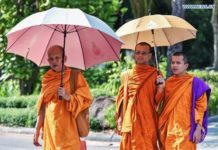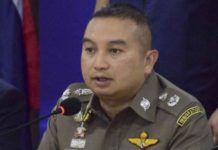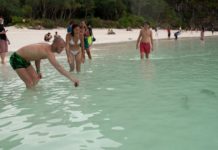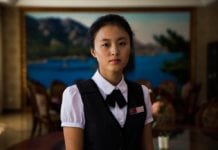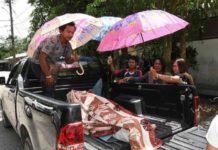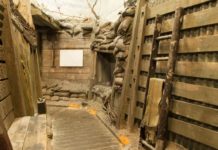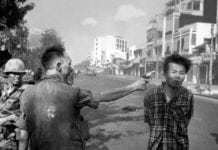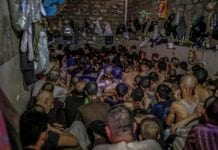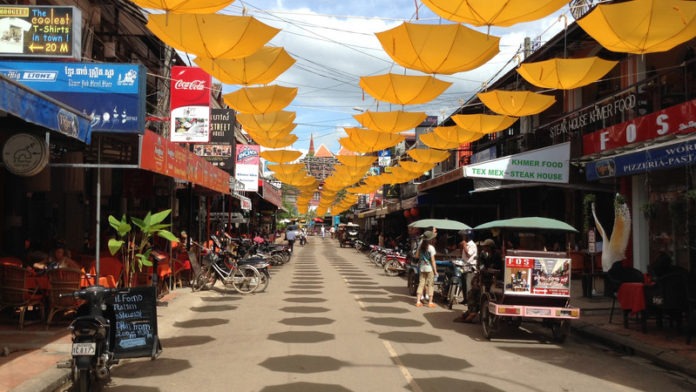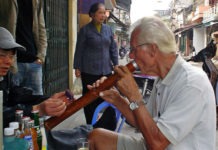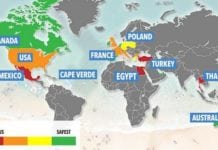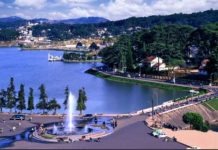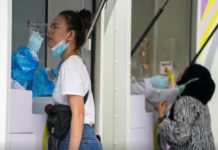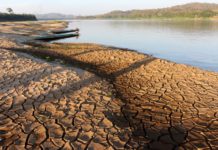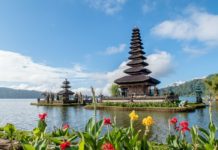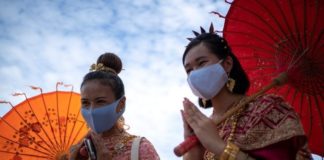If you #retire in #Cambodia, you can enjoy warm weather, friendly people and a relatively low cost of living.
However, retirees should be aware that they will have challenges when it comes to owning property, moving money in and out of the country, as well as travel and safety concerns.
A Country in Transition
The countries of South East Asia have always attracted retirees due to their weather, low cost of living and friendly local residents.
In recent years Cambodia has become a boom market, attracting many foreign investors and non-Cambodians who want to enjoy the growing economy and the beauty of the countryside and the capital city, Phnom Penh.
The Cambodian government wants to attract foreign visitors and residents. A key step in making Cambodia attractive is to continue to provide an inexpensive lifestyle in interesting-looking cities with attractive and well-priced housing.
Retire in Cambodia For Fun and Value
If you are looking for a relatively inexpensive place to retire, consider Cambodia. The cost of living in Cambodia is very low, making it an attractive place to retire.
Basic necessities such as food and housing are readily available at low cost.
Many retirees enjoy how they can live comfortably on significantly less than it would cost for the same standard of living in other countries such as the United States.
Housing
Cambodia is experiencing the largest real estate boom in Asia, particularly in Phnom Penh. Foreign investors, combined with local partners, are building large condominium projects to capitalize on the features that foreigners tend to enjoy such as:
- Wide streets
- Visually-interesting housing
- A contemporary atmosphere
- An attractive river view
Rental housing is inexpensive and plentiful in Phnom Penh. Rental costs range from about $200 a month for a small apartment to about $1,000 a month for a moderate apartment with 1,100 square feet. This same apartment can be purchased for about $300,000.
Foreigners cannot purchase land in Cambodia, including apartments on the ground floor. Retirees who want to buy houses are able to purchase the house structure; however special arrangements must be made for the land under the house.
For example, the new homeowner can:
- Lease the land on a short-term renewable lease.
- Lease the land on a long-term lease of up to 99 years.
- Create a locally-owned company with local Cambodians and purchase the land through the company.
Other interesting places to live include Sihanoukville, a beachside town on the country’s western coastline, and Siem Reap, a small city that’s close to the famous Angkor ruins.
Both of these towns offer many of the conveniences that foreign visitors expect, including local convenience stores and ATM machines that accept foreign bank cards.
Lifestyle
The large expatriate community makes a solid base for new English-speaking friends.
Many of these “expats” own small businesses that put them in the center of the active bar and nightlife such as hotels, bars and restaurants.
Other retirees and expats work with non-profit programs or non-governmental organizations associated with the United Nations as volunteers or in job functions such as those listed at idealist.org.
Issues to Consider
Life in Cambodia can be difficult. It is a very poor country, which can often result in non-existent or inconsistent services.
Relatively new policies by the Cambodian government and the influx of foreign banks and lenders are improving the financial side of life for retirees in Cambodia.
Passport and Visa Requirements
To enter Cambodia, a valid passport and Cambodian visa are required.
You can apply online for a Cambodian visa. Several types of visas are available including a business visa which can be obtained without any proof of income or employment.
A business visa is valid for up to a year. You may want to consider applying for Cambodian citizenship if you plan to live permanently in Cambodia.
Be sure to do your research before applying since, according to the United States State Department, “A person who acquires a foreign citizenship by applying for it may lose U.S. citizenship.”
Utilities
- Electrical power is inconsistent. Power outages are common both in the cities and rural areas.
- Internet access is slow and expensive.
In-Country Travel
- Night driving can be hazardous due to the poor condition of the roads and bandits in the rural areas.
- Boat travel is often unsafe due to overcrowding.
Medical Facilities
Basic health care, prescriptions, and over-the-counter medications are available in Phnom Penh and Siem Reap.
However, they are usually difficult to find in the rural areas. The quality of the care and the medications may not be up to the standards enjoyed in the United States or Europe.
People with major illnesses, or those requiring surgery, are usually evacuated to Thailand.
Nursing home facilities are available, but a retiree should not expect them to be of the standards mandated by the government in the United States.
The United States Department of State suggests that Americans check their medical insurance coverage before they leave for Cambodia and specifically ask their insurer:
- Are they covered while they are in Cambodia?
- Are they covered for prescriptions purchased in Cambodia?
- Will their policy cover the costs of any medical evacuation out of Cambodia to Thailand or back to the United States?
- If they pass away in Cambodia, will their insurance cover any required movement of their remains?
Retirees who move to Cambodia may want to consider “expat health insurance.”
An Internet search will result in the names of insurance providers with this special type of health care coverage.
Banking and Taxes
The United States dollar is commonly accepted with the local Cambodian currency given for change.
ATMs for several international banks in Phnom Penh dispense U.S. dollars. Cash advances in dollars can also be obtained using a Visa card at international banks.
Retirees may find it difficult to receive their retirement income from the United States. For example:
- Social Security checks cannot be mailed to Cambodia. They must be either deposited into a retiree’s bank account or sent to the Embassy for pick up by the retiree.
- Brokerage firms may not allow retirees to maintain the account they opened in the United States if they are permanently living in Cambodia.
Setting up an account with a large international financial institution with branches in Cambodia, such as Bank of America or CitiCorp, can be very helpful.
These institutions understand the challenges often experienced by an expat and can help a retiree move money to and from the United States.
Be sure to investigate the Cambodian income tax rules. There is a sliding scale tax rate that charges up to 20 percent on all income earned from anywhere in the world, including retirement income.
Individuals who have lived in Cambodia for a total of 182 days or more in a calendar year are liable for Cambodian income taxes.
Safety
Cambodia has a high crime rate, particularly with street crimes such as purse snatchings, pickpockets and road bandits.
Visitors and residents should always be aware of their surroundings and keep their valuables secure.
The U.S. Department of State website is a good source for up-to-date information on security concerns.
The United States Embassy in Phnom Penh has set up the Warden Network, a system to quickly pass emergency information from the Embassy to citizens visiting or living in Cambodia.
Each individual (or one person from a family group) is asked to register with the embassy, providing the following information:
- Date Arrived
- Date Plan to leave
- Residence and work addresses and phone numbers
- FAX number
- E-mail address
- Alternative contacts
- Emergency contact telephone numbers
References for More Information
There are many helpful websites and books available with more information on retiring in Asia and specific information on Cambodia and its lifestyle.
Here are a few:
- Retire-Asia.com
- Frommer’s Southeast Asia
- Cambodia Country Guide
- UK Foreign Office
(source – LoveToKnow.Com)

